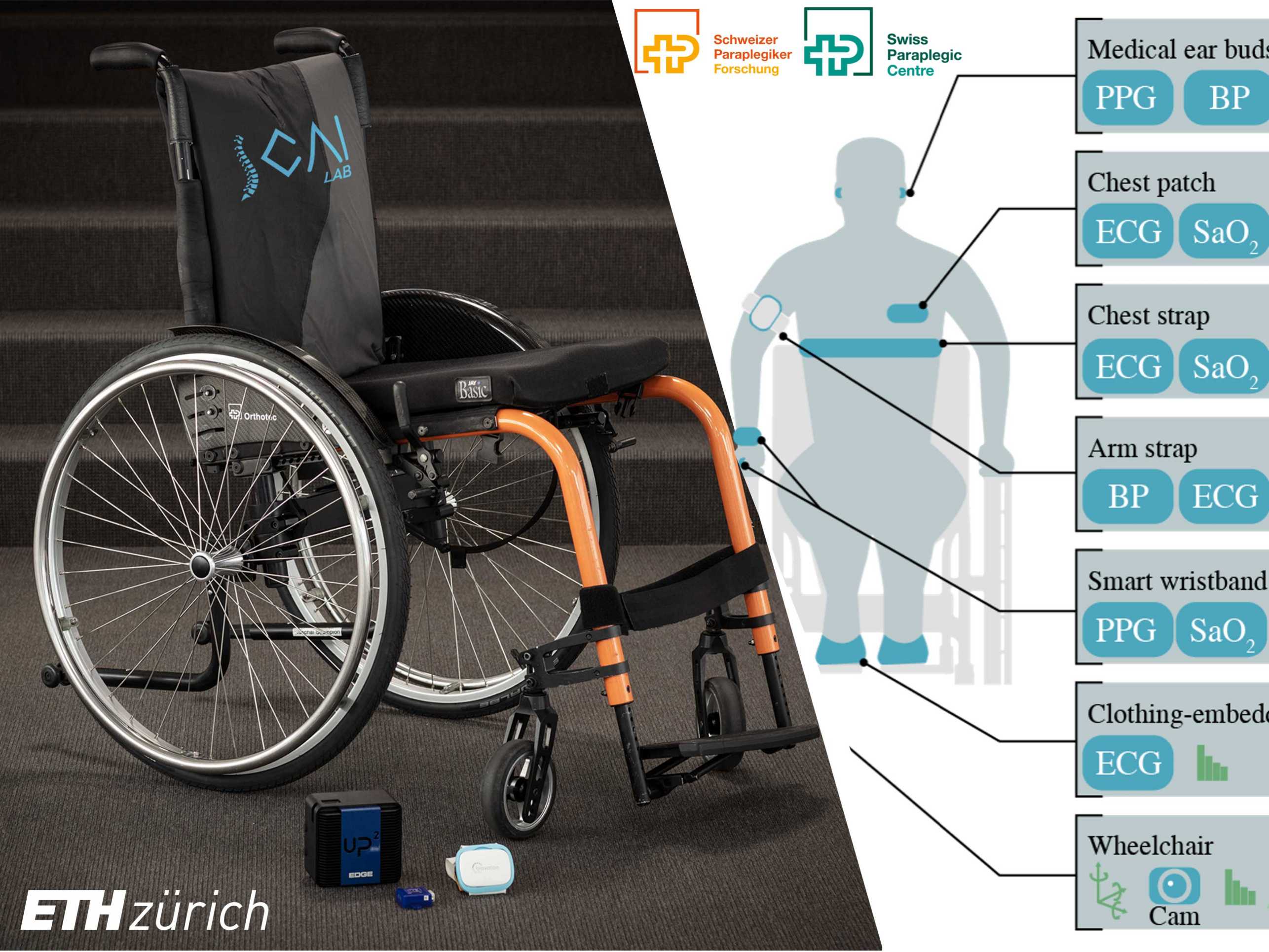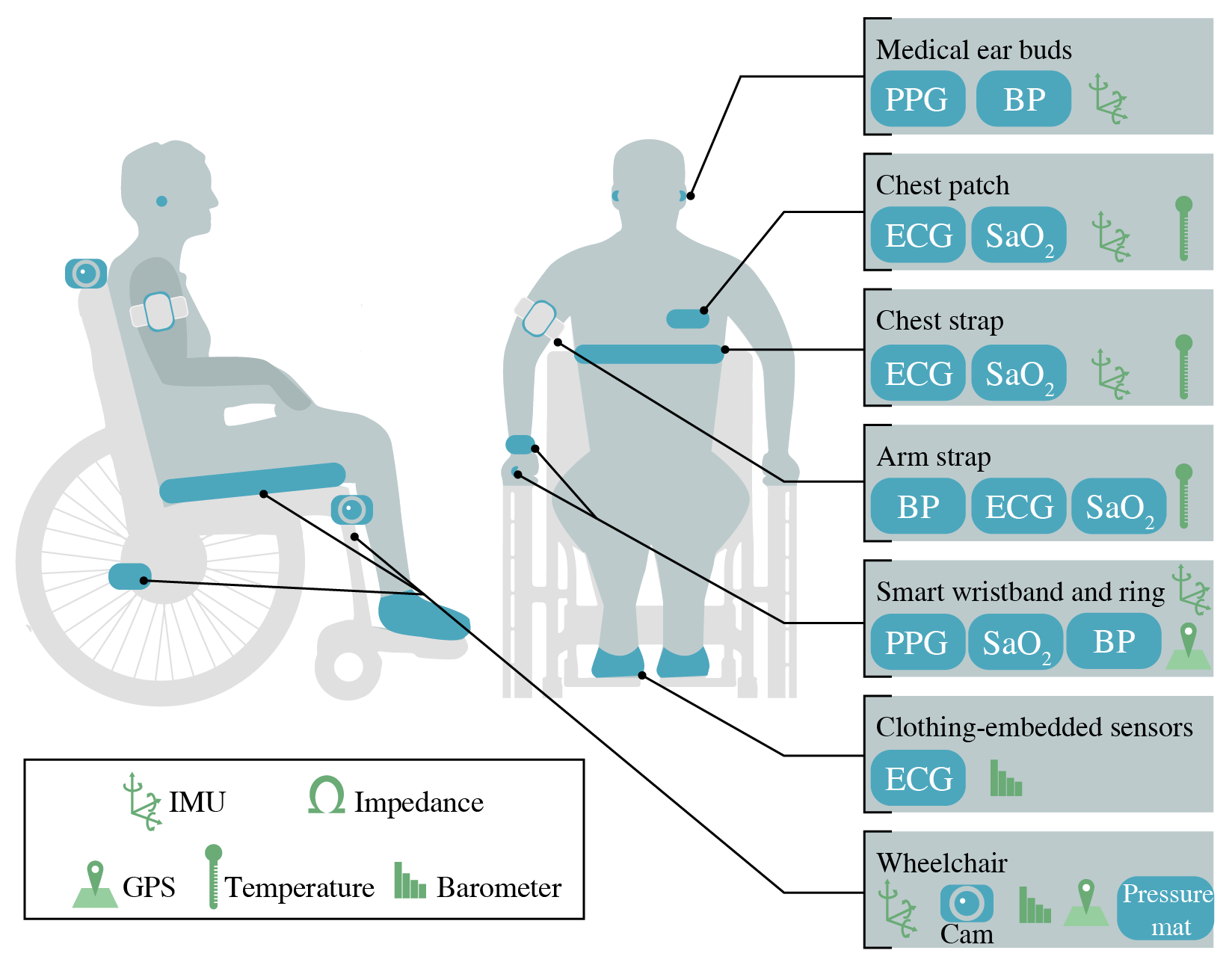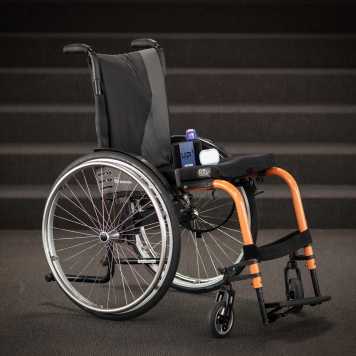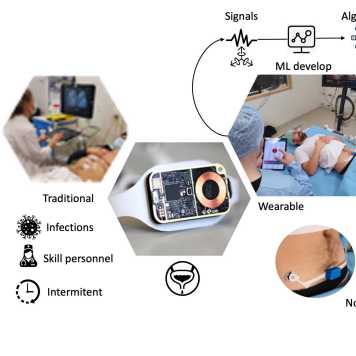Wearable Sensing and Sensor Fusion for Health Care Monitoring and Modeling
Spinal Cord Injury (SCI) is a lifelong lasting condition that can affect anyone. Although much-advanced care has provided improved prognosis post-SCI, we still see a remarkable difference in the mortality rate of persons with SCI compared to the general population from 2 times in paraplegics to over 8 times in tetraplegic persons. The main causes of reduced life expectancy are cardiovascular disease, pulmonary infections and urinary tract infections.
Continuous monitoring of the physical activity levels, social behaviours, and environmental factors together with cardiovascular function from physiological signals in a continuous and unobtrusive manner (such as posture, movement, social patterns, cardiac output, breathing patterns, and skin response) will enable us to develop methods and models to quantify risk probabilities and subsequent preventive strategies.
Due to the loss of sensation, persons with SCI do not perceive warning signs of medical problems, such as pain. Moreover, clinical symptoms are often either absent or unspecific e.g., new, or intensified spasticity may be a sign of a pressure injury, or a urinary tract infection.
We build upon a comprehensive experience of sensing technologies for human behaviour monitoring and bio-signal processing for developing integrated methods for recognizing new patterns of clinical signs or symptoms for the early detection and prevention of diseases.
This work within the Swiss Paraplegic Center (SPZ) and research institute (SPF) is embedded within the framework of lifelong medical, rehabilitation and social care where wearable and nereable sensing will enable us to address the challenge of continuous behavioural and physiological monitoring accounting for medical and personal records which will lead to a combined multimodal data-based modelling of the health status.
We will leverage the usage of biosensors for a broad range of signals (e.g., HRV, BP, RR, ECG, Temperature, Oxygenation, Movement, etc.) continuously and unobtrusively for the identification of relevant digital biomarkers.
We will develop objective assessment methods for the onset of pressure injuries, quantifying autonomic dysregulation and observing urinary tract functioning. Based on sensor fusion from highly reliable multi-modal sensor data combined with retrospective clinical record analysis and ultimately construct digital TWIN model of the condition for preventive care through advanced machine learning models.
Founded by the ETH-SPS Digital Transformation in Personalized Health Care for SCI Project
Subprojects
Working Group
External Collaborations
- KD Dr. Med. PhD Inge Eriks Hoogland (SPZ - Head of Outpatient Unit)
- KD Dr. med. PhD Anke Scheel-Sailer (SPZ - Senior Consultant Inpatient Unit)
- Prof. Dr. med. PhD Jürgen Pannek (SPZ - Head of Neuro-Urology)
- Stefan Stalder (Head of D.IT SPZ)
- Dr. Med. Benjamin Wiludda (SPZ)
Contact
Schweiz



